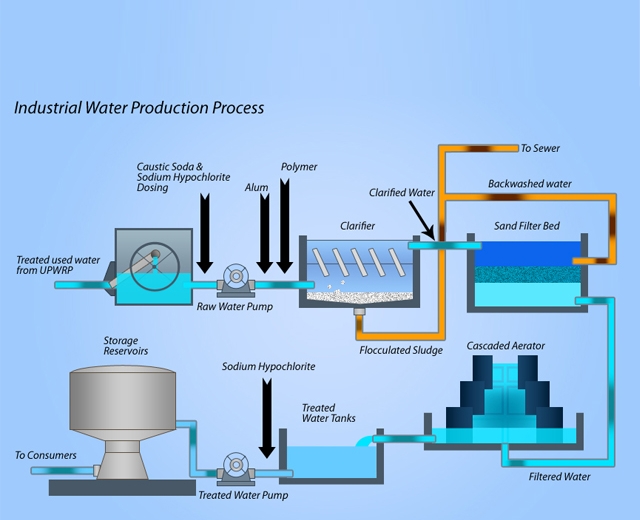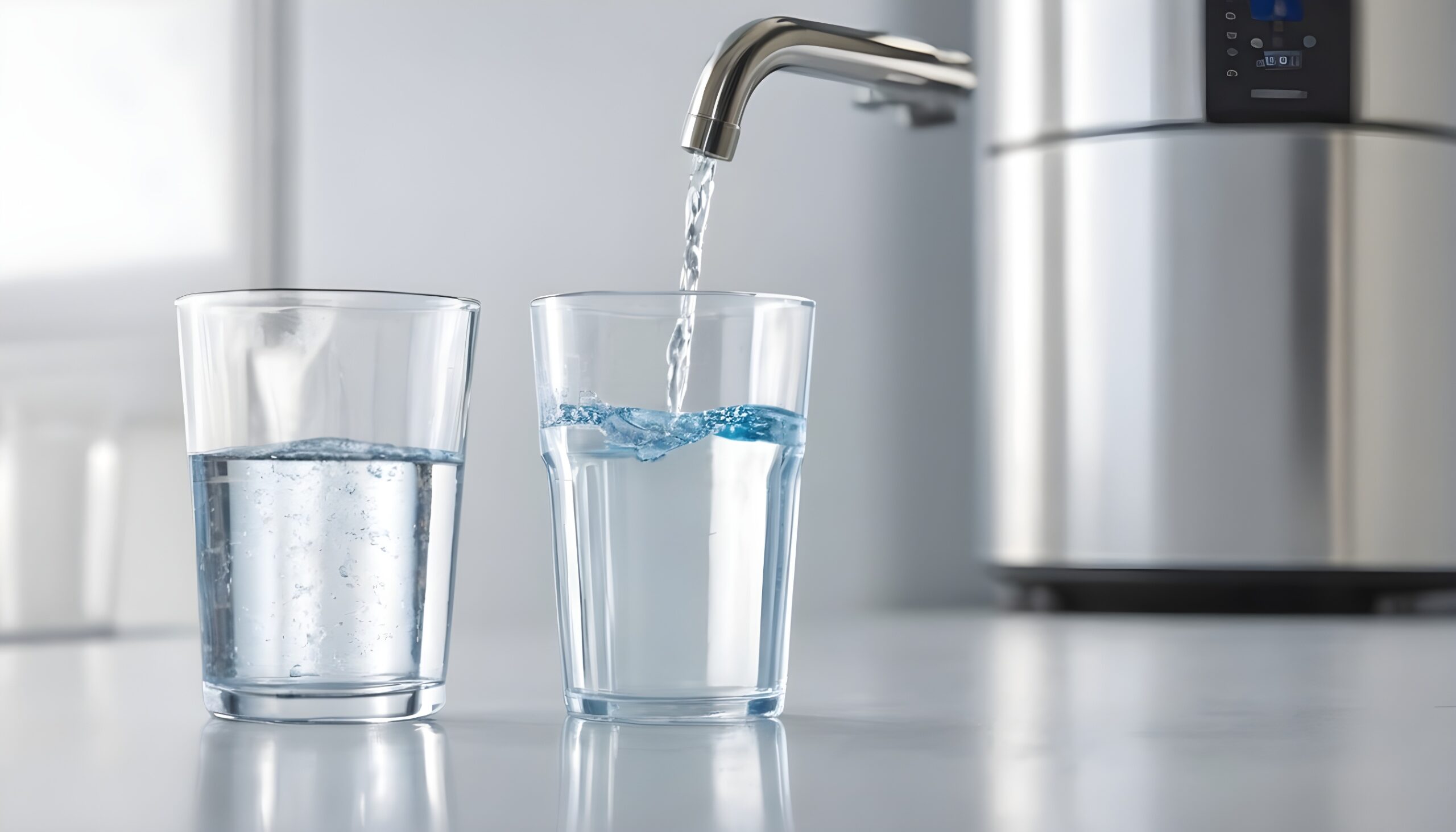Upgrade Your Water High Quality Today with a Water Purification System
Upgrade Your Water High Quality Today with a Water Purification System
Blog Article
Why a Water Purification System Is Essential for Clean, Safe Water
Access to clean, safe water is a fundamental human right and a keystone of public health and wellness. The visibility of hazardous impurities such as pathogens, heavy steels, and chemical toxins in our water supply raises serious issues regarding health and well-being. A water filtration system stands as a vital option to minimize these threats, making sure that individuals and areas can access risk-free drinking water. Recognizing the details of these systems and their numerous methods is essential, particularly as we take into consideration the implications for health and wellness end results and environmental sustainability in our day-to-days live.
Significance of Clean Water
Access to tidy water is a basic necessity for human health and wellness and well-being. It is vital for sustaining life, supporting health, and keeping overall public health and wellness. Water Purification System. The availability of risk-free drinking water substantially lowers the danger of waterborne diseases, which present a considerable danger to neighborhoods worldwide. Polluted water can cause serious health and wellness problems, including intestinal ailments, cholera, and dysentery, particularly in vulnerable populations such as children and the senior.
Moreover, tidy water is crucial for sanitation and hygiene techniques, which are essential in avoiding the spread of infectious diseases. Adequate supply of water sustains proper hygiene facilities, advertising a much healthier environment. Furthermore, access to safe water influences socioeconomic variables, as it makes it possible for areas to engage in agricultural and industrial activities, eventually adding to economic growth.
In many regions, the absence of clean water intensifies poverty and inequality, more impeding progress towards sustainable advancement goals. Therefore, making certain accessibility to clean water is not only a public wellness critical but also a foundation for social equity and financial growth. Initiatives to improve water top quality and framework have significant advantages, fostering healthier areas and enhancing lifestyle.

Common Impurities in Water
Guaranteeing the availability of clean water is undermined by numerous contaminants that can compromise its safety and high quality. The existence of pathogens, such as infections, parasites, and microorganisms, postures significant wellness dangers, particularly in areas lacking adequate sanitation. These microbes can cause waterborne illness, causing severe illness and even death.
Chemical impurities likewise provide an essential concern. Heavy metals, consisting of mercury, arsenic, and lead, often go into water supplies through industrial discharges or corroded plumbing. These materials can build up in the body over time, bring about long-lasting health and wellness concerns such as neurological damage and developing disorders.
In addition, agricultural drainage presents pesticides and fertilizers into water systems, which can interfere with ecosystems and adversely impact human health. Nitrates, typically discovered in plant foods, can trigger significant problems like methemoglobinemia, particularly in infants.
Advantages of Water Filtration Systems
Acknowledging the critical need for secure alcohol consumption water, water filtration systems use a myriad of benefits that improve public health and wellness and ecological sustainability. Largely, these systems properly get rid of harmful contaminants, consisting of germs, viruses, heavy steels, and chemicals, making certain that the water taken in is cost-free from toxins and microorganisms. This decrease in contaminants considerably lowers the risk of waterborne conditions, promoting total community health and wellness.
In enhancement to health advantages, water filtration systems add to ecological sustainability by minimizing reliance on mineral water, which typically creates too much plastic waste. By using a filtration system, families can reduce their carbon impact and add to a much more sustainable ecosystem. These systems can improve the preference and smell of water, making it extra palatable for daily intake.

Different Kinds Of Filtration Methods

One usual method is reverse osmosis, which utilizes a semi-permeable membrane layer to different water from liquified impurities and solids. This procedure effectively decreases pollutants, consisting of heavy metals and chemicals. One more commonly utilized method is ultraviolet (UV) sanitation, which uses UV light to counteract viruses and germs, making them safe without using chemicals.
Turned on carbon filtering is another preferred strategy, using carbon to adsorb organic substances, chlorine, and undesirable smells, improving taste and odor quality. Purification, a process that involves boiling water and condensing the heavy steam, successfully eliminates minerals and pollutants however may require even more power compared to other techniques.
Ion exchange is typically utilized to soften water by replacing calcium and magnesium ions with sodium or potassium ions. Each method has its advantages and constraints, making it necessary to recognize their performances and efficiency in dealing with specific water top quality concerns - Water Purification System. Eventually, choosing the appropriate filtration technique is important for guaranteeing clean and risk-free drinking water
Picking the Right System
Picking a suitable water filtration system calls for mindful consideration of numerous elements, consisting of the certain pollutants existing in the water system, the volume of water needed, and the desired filtration method. Initially, it is necessary to carry out a water quality test to determine contaminants such as bacteria, hefty steels, or chemical contaminants. This information will certainly guide you in selecting a system that properly targets those particular impurities.
Following, analyze your household's everyday water intake to figure out the system's ability. Equipments are available in different dimensions, from point-of-use filters for alcohol consumption water to whole-house units that detoxify all water entering your home.
Moreover, think about the purification technique that ideal fits your needs. Reverse osmosis is very reliable for getting rid of a broad array of impurities, while UV filtration is find superb for eliminating microorganisms.
Final Thought
Finally, the implementation of water purification systems is critical for making sure accessibility to clean and risk-free water. These systems successfully remove dangerous contaminants, thus reducing the risk of waterborne conditions and boosting public health and wellness. They add to environmental sustainability by minimizing reliance on bottled water. By understanding the significance of tidy water and the benefits of various filtration approaches, neighborhoods can make educated decisions to guard their health and wellness and promote socioeconomic stability.
Identifying the important need for secure drinking water, water filtration systems provide a myriad of advantages that enhance public wellness and environmental sustainability.In addition to wellness benefits, water filtration systems add to environmental sustainability by decreasing dependence on bottled water, which frequently creates excessive plastic waste. Ultimately, the adoption of water filtration systems is a proactive action towards guaranteeing tidy, risk-free water for future generations while guarding public health and the atmosphere.
Picking an ideal water filtration system calls for careful consideration of numerous factors, consisting of the particular impurities explanation present in the water supply, the volume of water needed, and the desired filtration approach.In conclusion, the application of water filtration systems is important for guaranteeing access to safe and clean water.
Report this page